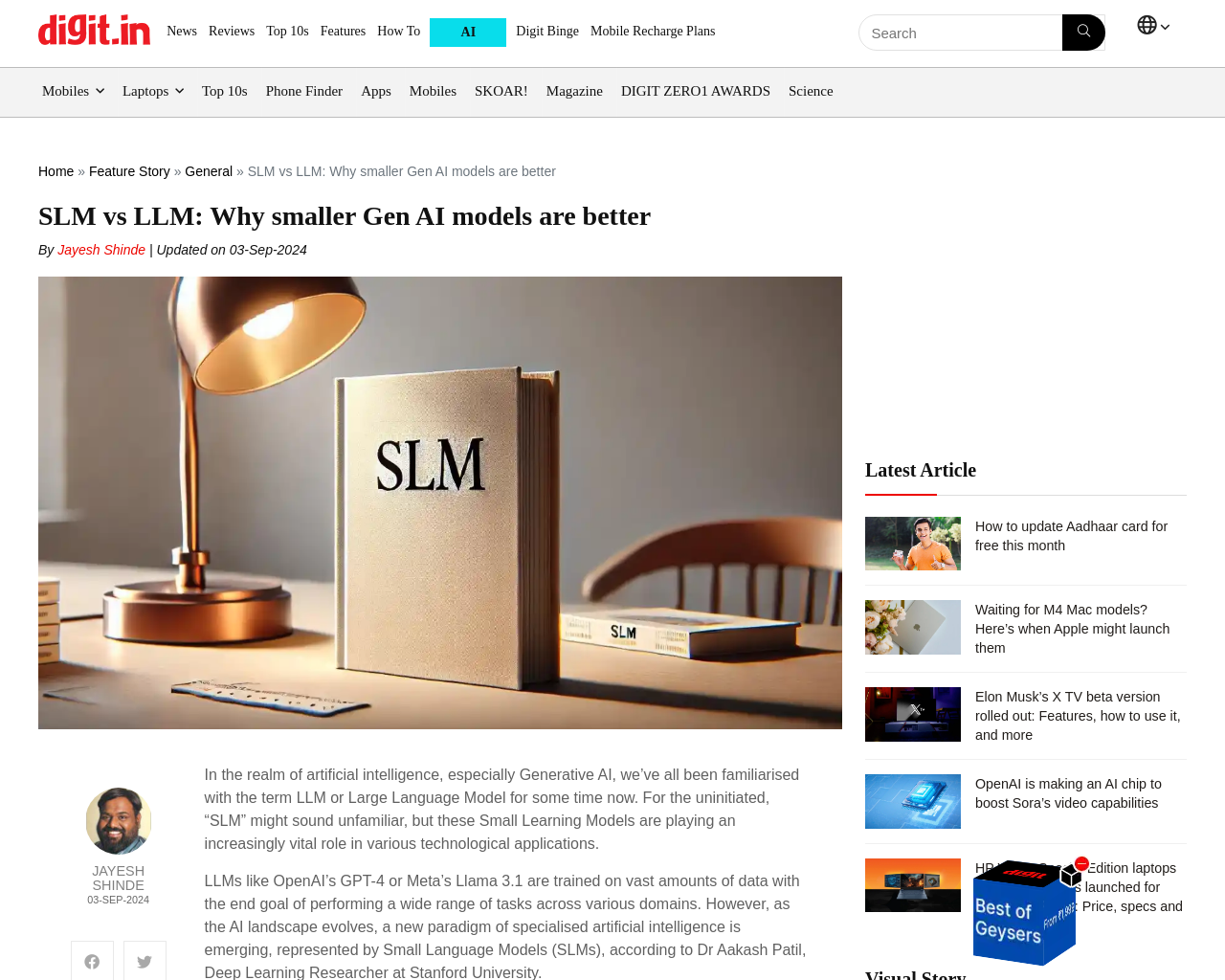- Small Language Models (SLMs) are gaining importance in AI applications, offering efficiency and cost-effectiveness.
- SLMs are more compact and efficient than Large Language Models (LLMs) like GPT-4 or Llama 3.1.
- SLMs are defined as models with fewer than 20 billion parameters, providing faster processing and lower computational costs.
- Developers are considering the choice between LLMs and SLMs based on factors like efficiency and accuracy for targeted tasks.
- SLMs, such as Microsoft’s Phi-2 and IBM’s Granite, have shown impressive performance in specific domains despite their smaller sizes.
- SLMs enable rapid prototyping and fine-tuning on domain-specific data, making AI development more accessible and cost-effective.
- Specialised models known as Domain-Aligned Models incorporate industry-specific knowledge and regulatory understanding, promising solutions for critical sectors.
- SLMs are deployed on both cloud and end-user devices, with hardware accelerators like Google’s Edge TPU showing promising results for edge deployment.
- While SLMs offer efficiency and cost-effectiveness, they may struggle with complex tasks requiring extensive world knowledge or general reasoning capabilities.
- The rise of SLMs is reshaping the future of AI by focusing on innovation in model architecture, training techniques, and deployment strategies.
SLMsの台頭は、AIアプリケーションにおいて効率性とコスト効率を提供し、重要性を増しています。SLMsは、GPT-4やLlama 3.1のようなLLMsよりもコンパクトで効率的であると定義されており、2兆パラメータ未満のモデルとして定義されています。開発者は、効率性や特定のタスクにおける精度などの要因に基づいて、LLMsとSLMsの選択を検討しています。SLMs、例えばMicrosoftのPhi-2やIBMのGraniteは、その小さなサイズにもかかわらず、特定の領域で印象的なパフォーマンスを発揮しています。SLMsは、迅速なプロトタイピングやドメイン固有データへの微調整を可能にし、AI開発をよりアクセス可能かつコスト効率的にしています。業界固有の知識や規制理解を取り入れた特化したモデルであるDomain-Aligned Modelsは、重要なセクターに向けた有望なソリューションを提供しています。SLMsは、クラウド上やエンドユーザーデバイス上に展開されており、GoogleのEdge TPUなどのハードウェアアクセラレータは、エッジ展開において有望な結果を示しています。SLMsは効率性とコスト効率を提供しますが、複雑なタスクや広範な世界知識や一般的な推論能力を必要とする場合には苦しむ可能性があります。SLMsの台頭は、モデルアーキテクチャ、トレーニング技術、展開戦略の革新に焦点を当てることで、AIの未来を形作っています。
元記事: https://www.digit.in/features/general/slm-vs-llm-why-smaller-gen-ai-models-maybe-better.html

